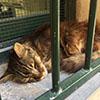Make Worktime Your Playtime
By isabell.the.polyglotSeptember 25, 2015 - 16:38

The problem with play is that it’s childish. Or so people say. Play is more often than not seen as a waste of time, an activity that only immature humans partake in. Adults, on the other hand, are critical of this seemingly useless activity and are envious of a kid’s ability to play so mindlessly. However, play experts Tim Edensor et al. and Robin Marantz Henig discuss in their essays Playing in Industrial Ruins and Taking Play Seriously, respectively, that play is not limited to children. In fact, our whole definition of play is skewed. Play is not the opposite of work; the line between them is blurred such that play is as productive as work and work can be as fun as play.









